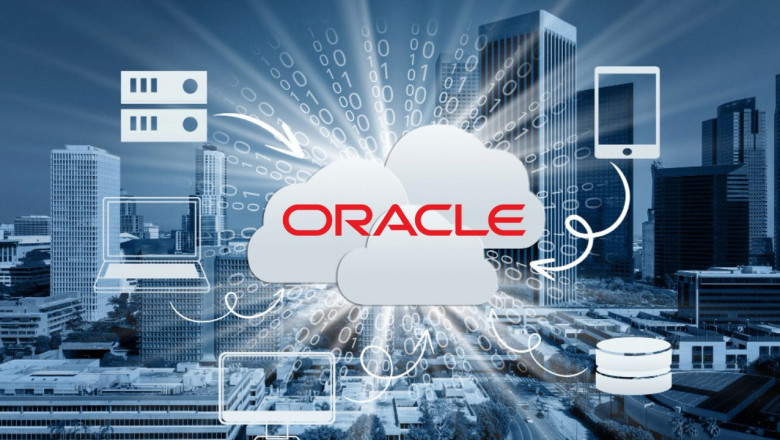views
Introduction
Choosing the right database for your application is one of the most critical decisions for long-term scalability, performance, and maintenance. In 2025, two names dominate conversations: MySQL and MongoDB.
While MySQL has been the industry standard for relational databases for decades, MongoDB has surged in popularity thanks to its NoSQL, document-based approach. But which one is right for your business?
At Hexadecimal Software, we help startups, enterprises, and industry-specific platforms like HexaHome make the right decision based on their data architecture, performance needs, and long-term vision.
This blog breaks down the major differences between MySQL and MongoDB, comparing them on performance, scalability, data modeling, real-world use cases, and developer preferences.
1. What is MySQL?
MySQL is a relational database management system (RDBMS) based on Structured Query Language (SQL). It uses a predefined schema with tables, rows, and columns.
Key Features:
-
ACID-compliant transactions
-
Strong data integrity
-
SQL queries with joins, indexes, stored procedures
-
Widely supported in frameworks (Laravel, Spring, etc.)
MySQL is used in traditional web apps, e-commerce, CRMs, and even backend services of real estate platforms like HexaHome where structured data is key.
2. What is MongoDB?
MongoDB is a NoSQL document-oriented database. It stores data in JSON-like BSON documents instead of rows and tables.
Key Features:
-
Schema-less and flexible
-
Horizontal scalability
-
Integrated full-text search and geospatial support
-
Suitable for fast iterations and unstructured data
MongoDB is a favorite for IoT, real-time analytics, content management, and apps with rapidly changing data formats.
At Hexadecimal Software, we often recommend MongoDB for mobile apps, user-generated content platforms, and geo-based applications.
3. Data Modeling: Structured vs. Flexible
| Aspect | MySQL | MongoDB |
|---|---|---|
| Schema | Fixed, predefined | Dynamic, schema-less |
| Relations | Complex joins | Embedded documents, references |
| Transactions | Strong ACID compliance | ACID (limited in older versions) |
| Ideal for | Banking, ERP, CRM | Real-time apps, catalogs |
MySQL enforces structure, making it excellent for enterprise workflows like billing and accounting. MongoDB, on the other hand, offers flexibility, perfect for startups and evolving products.
4. Performance & Scalability
MongoDB handles high-throughput read/write operations better due to its NoSQL nature and horizontal scalability. It excels in distributed environments.
MySQL performs better for complex queries with JOINs and when data integrity is paramount.
At Hexadecimal Software, we build custom architectures based on your app's demands. For instance, HexaHome uses MySQL in modules like lease agreements and MongoDB in dynamic search features like live property filters.
5. Developer Ecosystem
MySQL:
-
Mature ecosystem
-
Supported by major CMS and frameworks
-
Easy to find talent
-
Lots of hosting options
MongoDB:
-
Modern and cloud-native
-
Excellent documentation
-
Atlas (DBaaS) is widely used
-
Built-in sharding and replication
Our team at Hexadecimal Software is proficient in both, helping clients leverage the best of each depending on the use case.
6. Use Cases – When to Use What?
| Use Case | Best Choice |
|---|---|
| Financial Transactions | MySQL |
| IoT & Real-time Analytics | MongoDB |
| Inventory Management | MySQL |
| Content or Product Catalog | MongoDB |
| Location-based Services | MongoDB |
| Property Management (HexaHome) | Hybrid (Both) |
We often implement hybrid systems at Hexadecimal Software, where both databases co-exist. For example, HexaHome uses MongoDB for location search and user activity logs while storing official records in MySQL.
7. Querying: SQL vs. NoSQL
MySQL uses standard SQL:
MongoDB uses JSON-style queries:
SQL is excellent for precise relational data queries. NoSQL shines when flexibility and speed are prioritized, especially in modern web apps.
8. Security and Compliance
Both databases offer solid security:
-
MySQL: SSL/TLS, user roles, stored procedures
-
MongoDB: Authentication, role-based access, encryption at rest
Hexadecimal Software enhances default setups with secure configurations, especially when handling sensitive data like customer info or financial records for platforms like HexaHome.
9. Deployment Options
| Platform | MySQL | MongoDB |
|---|---|---|
| On-premise | ✅ Widely supported | ✅ Supported |
| Cloud | ✅ AWS RDS, GCP | ✅ MongoDB Atlas, AWS, GCP |
| Containerized | ✅ Docker/K8s | ✅ Docker/K8s |
We offer end-to-end deployment solutions at Hexadecimal Software, from on-prem servers to Dockerized microservices on the cloud.
10. Community & Ecosystem
-
MySQL has been around since the 90s with massive community support.
-
MongoDB has a fast-growing community and corporate backing with regular updates.
Both are well-supported by ORMs, CI/CD tools, and cloud platforms. We leverage this at Hexadecimal Software to integrate CI pipelines, auto backups, and monitoring systems in client projects.
Final Verdict – Which One to Choose?
There’s no one-size-fits-all. Here's how we break it down at Hexadecimal Software:
Choose MySQL if:
-
Your data is structured and relational
-
You need complex queries and ACID compliance
-
You’re building ERP, HRMS, accounting systems
Choose MongoDB if:
-
You need flexibility and speed of development
-
Your app is cloud-native, real-time, or geospatial
-
You work with large volumes of semi-structured data
For platforms like HexaHome, we use both depending on the feature set, giving the best of performance and reliability.
Why Partner with HEXADECIMAL SOFTWARE?
✅ Full-Stack Expertise: From backend architecture to cloud deployment
✅ Hybrid Model Implementation: MongoDB + MySQL for optimal efficiency
✅ Real Estate Specialization: As shown in our platform HexaHome
✅ Scalable Solutions: Built to handle millions of users and data points
✅ Secure and Compliant Systems: Built for global standards
Whether you’re modernizing legacy systems or building a next-gen SaaS product, we’ll help you choose and implement the perfect data stack.
Ready to Decide?
Still unsure which database suits your needs? Talk to the team at Hexadecimal Software.
And if you're in the real estate business, check out HexaHome—a platform where MySQL and MongoDB power the future of property management together.
Written by – HEXADECIMAL SOFTWARE AND HEXAHOME














Comments
0 comment